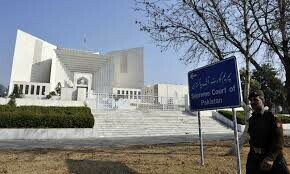PESHAWAR, Dec 16: Farmers in Khyber Pakhtunkhwa’s arid areas need irrigation water as the ongoing dry spell has rendered standing wheat crop vulnerable to a slow growth and disease attacks, say agriculture experts.
According to the Met office in Peshawar, the current ‘unexpected’ dry spell in the province and adjoining areas is likely to persist for an unknown number of days.
Except for a few places, including Abbottabad, Balakot, and Kalam that received light rain over the last 15 days, most Khyber Pakhtunkhwa areas have so far recorded no showers in December to the misery of wheat growers in the areas dependent on rains for crop irrigation.
“We expected rainfall in Khyber Pakhtunkhwa and northern areas of the country in the first and second week of the current month but an unexpected dry spell has set in,” Director Regional Met office, Peshawar, Mushtaq Ali Shah told Dawn on Friday.
Speaking to Dawn on the telephone, farmers of Dir and Buner’s arid areas said their standing wheat crop desperately needed water, adding that continuation of dry spell for a couple of more weeks would negatively affect its growth, causing them huge financial losses.
Jamsher Khan, a farmer of Korea village in Mandun tehsil of Buner district, said it was for the first time (this year) after 2002 that November and the first half of December had passed without rains, causing worry to growers, who depend on showers to irrigate crops.
According to the 2010 Khyber Pakhtunkhwa development statistics, wheat was cultivated on around 370,000 hectares in the un-irrigated (arid) area of the province in 2009-10, producing 419,000 tons, almost half of the crop produced in the province. An official of the Met office said the dry spell was an unusual phenomenon and that seasonal rainfall was expected in November and December as Pakistan had a neutral year, a weather phenomenon that happens once in every eight to 12 years.
“Since sea surface temperatures (in the Mediterranean Sea, Pacific Ocean, and the Arabian Sea) are normal, the country is set to experience a normal season from November to March,” Mr Shah said, adding that the Met office didn’t anticipate dry spell during the current part of the year.
He said the standing wheat crop would come under attack by diseases in case the dry spell lasted for a couple of more weeks in the arid areas of the province, including parts of Upper Dir, Lower Dir, Swat, Hazara region, Bannu, Dera Ismail Khan, Tank, Chitral, Peshawar, Charsadda, Nowshera, and Swabi districts.
Agriculture experts say wheat growers need irrigation water from laying seed beds to spraying pesticides to nourish, raise and protect crop.
Farmer Altaf Hussain, from Dir Lower district, said growers, who sowed wheat seeds in December, were in trouble due to scarcity of water in absence of rainfall, which was their only source to irrigate crops. He said the farmers’ worries in his area had compounded in the absence of rainfall as irrigation tube wells owned and operated by the provincial irrigation department could not be operated.
According to him, the Peshawar Electric Supply Company had disconnected electricity supply to the irrigation tube wells due to non-payment of arrears leaving growers to ‘see towards the sky’ for rainfall and get the much-needed water for crop irrigation.
Mr Hussain said wheat, barley and turnip had been cultivated on a vast area in the arid zone of Dir and its adjoining Swat and Buner districts.
“Farmers will end up with low wheat yield, around one fourth less than the yield usually recorded in a year, if the current dry spell lingers on until mid January,” he said. In line with the Met office’s forecast, weather-related woes of local farmers are expected to continue for some more time as rains are not expected in the next few days.
A meteorologist told Dawn that except for Gilgit, Baltistan and Azad Jammu and Kashmir that were expected to receive light showers on December 19, chances of rainfall in the whole of Khyber Pakhtunkhwa were next to none in near future.According to him, in Khyber Pakhtunkhwa, Abbottabad received 6mm rain in December, Balakot 1 mm, Kalam 1 mm, and Saidu Sharif (Swat) 0.1 mm. “No other place in any of the 25 districts in the province has had rainfall this December so far,” he said.















































Dear visitor, the comments section is undergoing an overhaul and will return soon.